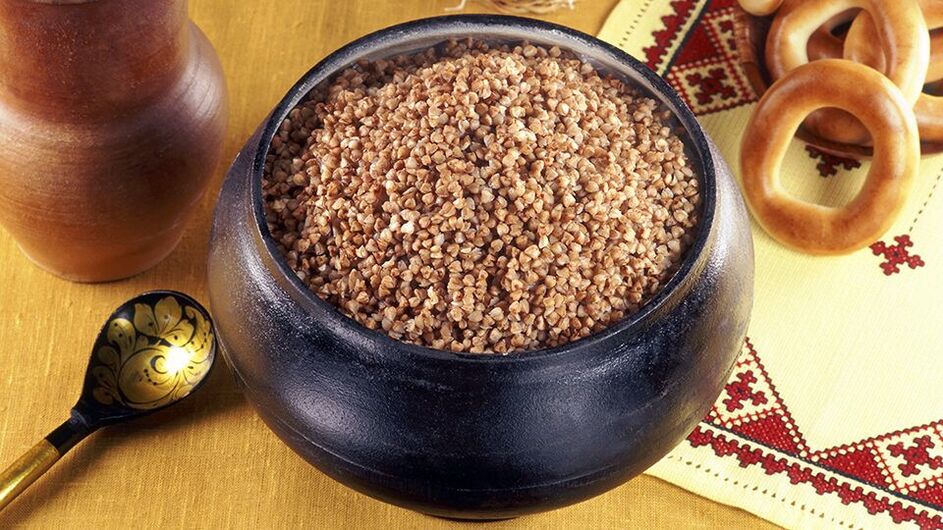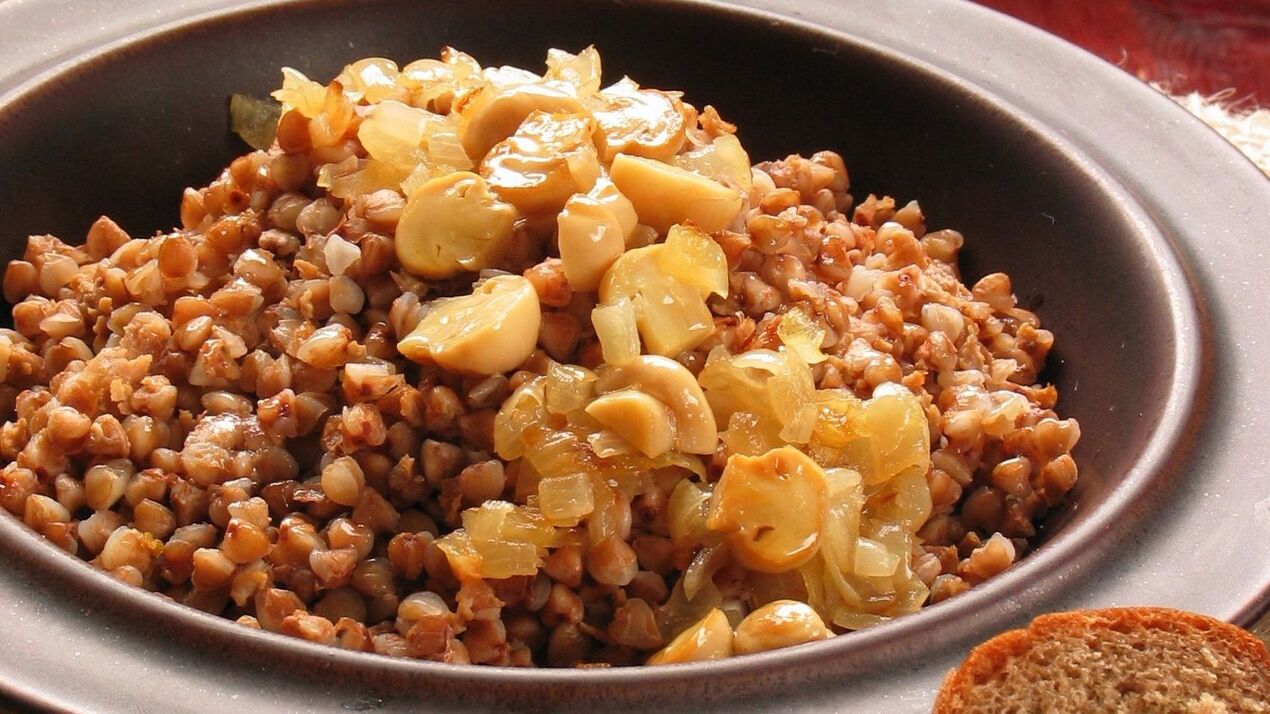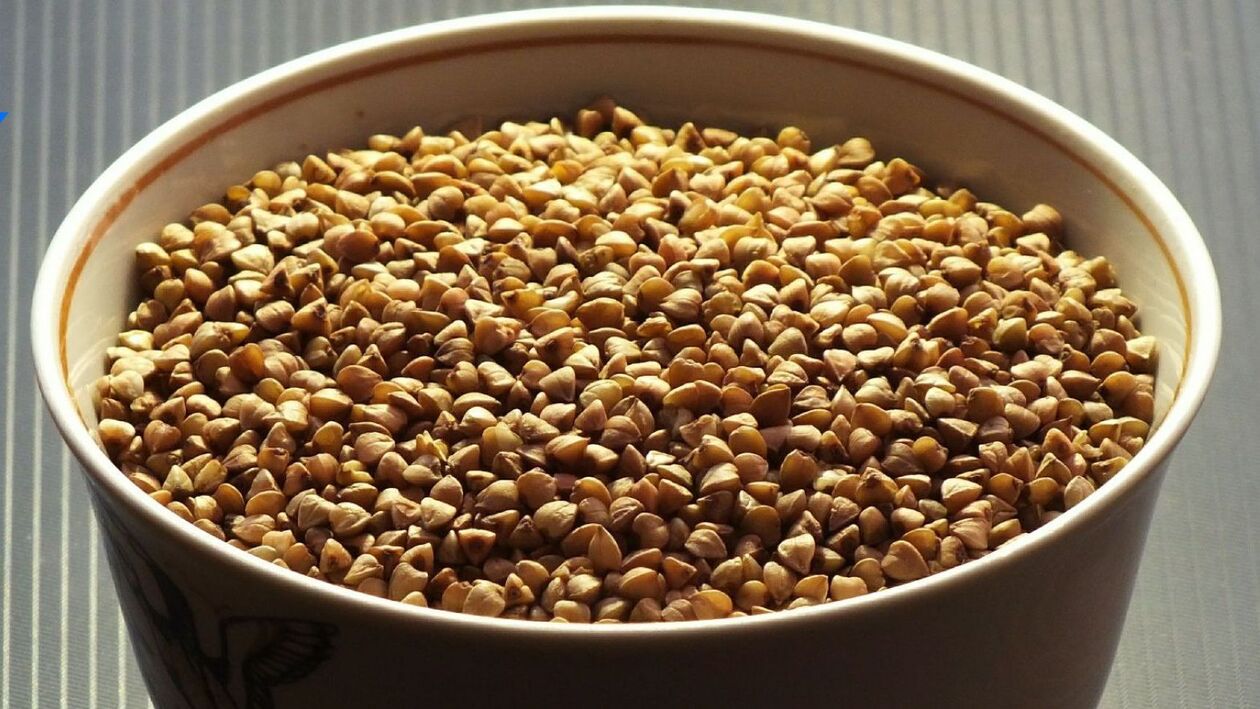
According to nutritionists, it gives fairly quick results despite its short duration. The recommendations will help you get out of the diet smoothly enough so that the lost kilograms do not return immediately.
Pros of the buckwheat diet
The principle of the buckwheat diet is to eat only buckwheat for a week or two. There are more gentle varieties in which you can add dried fruits, honey, natural juices, kefir and yogurt to your diet. This diet is easier to tolerate, but its effect is less.
A noticeable result in a short time is what is expected from all diets. The buckwheat diet does not last long and at the same time has a noticeable effect. Compared to other mono-diets, buckwheat does not deplete the body as much, since this cereal contains many vitamins and minerals.
The cost-effectiveness of such a diet is also important: buckwheat is quite cheap and accessible.
Cons of the buckwheat diet
With any mono diet, depletion of the body is possible. He does not get enough of many important substances, and even the mandatory intake of multivitamins in parallel with the diet will not compensate for the deficiency. For this reason, the diet is contraindicated for pregnant women, breastfeeding women, people with chronic diseases or during active work, so as not to provoke the disease. With a long diet, hemoglobin decreases, lethargy appears, fainting is possible, and attention is reduced. Any mono diet can cause depression. Physical stress also affects the psychological state, and during such a diet we are deprived of all the usual pleasures of food and are forced to eat the same thing every day.
Despite the benefits of buckwheat, eating it alone is quite difficult for the intestines and bloating, pain and digestive problems are possible. If these signs appear, you should stop the diet. Tiredness, poor sleep and depressed mood can be symptoms of intoxication: here different detoxification methods come to the rescue.
If you abruptly abandon the diet, rapid weight gain is possible. An exhausted body intensively consumes the foods that are finally allowed to it and puts it "in reserve" to survive the possible next stressful period of hunger strike.
Menu for 7 days according to the buckwheat diet
You need to eat 150 to 250 grams of dry buckwheat per day. Green or brown cereals should not be boiled, but evaporated. To do this, pour one part of buckwheat with 2. 5 parts of boiling water and close the container, wrapping it in a towel. The cereals will be ready overnight and the vitamins contained in them will not be destroyed. At the same time, salt, sugar and seasonings are completely excluded, that is, buckwheat is consumed "empty". If it is difficult to chew, you can mix buckwheat with low-fat kefir.
There are four meals, the main ones in the first half of the day until 5-6 pm. Make sure you drink plenty of water and take a multivitamin.
The menu would look like this:

- Breakfast: 50 grams of buckwheat, green tea without sugar
- Second breakfast: 50 grams of buckwheat, water
- Lunch: 100 g of buckwheat, tea or water
- Dinner: 50 grams of buckwheat, tea
Menu for 14 days according to the buckwheat diet
If it is difficult to adhere to a strict option, 100 grams of dried fruits, a spoonful of honey, unsweetened fruits and green vegetables are added to the daily diet. If you feel hungry between the main buckwheat meals, you can drink low-fat kefir or yogurt without additives or fruit juices.
In this case, the diet is extended by a week, since the result will not be so noticeable. The gentle form of the buckwheat diet is easier to tolerate and causes less harm to the body.
A sample menu each day would look like this:

- Breakfast: 50 grams of buckwheat, black coffee
- Second breakfast: a glass of kefir or a handful of dried fruit
- Lunch: 100 g of buckwheat, tea
- Afternoon snack: a snack of unsweetened fruit or vegetables: apple, cucumber, tomato; or a glass of tomato juice (without salt)
- Dinner: 50 grams of buckwheat, to be seasoned with plain yogurt
results
Due to the fact that carbohydrates in cereals are complex, their degradation takes a long time, so the feeling of satiety comes quickly and lasts a long time.
With a lack of nutrients, the body begins to draw energy from fat reserves, thus losing extra pounds. You can lose up to 10 kg in a week, but the first few days may not go away due to the sufficient amount of carbohydrates. The greater the initial weight, the greater the loss following the diet.
You can not get carried away with such diets, between courses there should be a break of several months of balanced nutrition so that the body has time to restore the supply of substances lost with the mono-diet.
To prevent kilograms from returning immediately, you need to exit the diet smoothly. Over the course of several days, gradually add some vegetables, dietary meat, dairy products and eggs to the buckwheat diet, leaving one meal exclusively based on buckwheat.
Gymnasts sometimes lose weight on a buckwheat diet when they urgently need to lose weight. This option is even tougher: for breakfast - buckwheat, pre-poured with boiling water and infused for two hours, during the day, until 6 pm - only 2-3 liters of green tea. With such a diet you can lose up to 5 kilograms in three days.
Nutritionist reviews
There is not a single benefit to such a diet. It is absolutely inferior: there is no fat, no protein, only carbohydrates. I am against any long term mono diet. In the active phase of weight loss, one day a week can be used as a fasting day to avoid a plateau in the future (when body weight stays the same and does not drop). But not a week or two. This can be life-threatening, " says nutritionist Irina Yablonskaya. — I can recommend one day of fasting, provided that the person has no contraindications, anemia, latent iron deficiency, serious illnesses, heavy physical work, etc. That is, for relatively healthy people who need to lose weight and lose a large percentage of body fat. The buckwheat diet is a folk art taken from the Internet. To lose weight I recommend turning to a dietician rather than searching the Internet for diets that can be harmful to health.
























